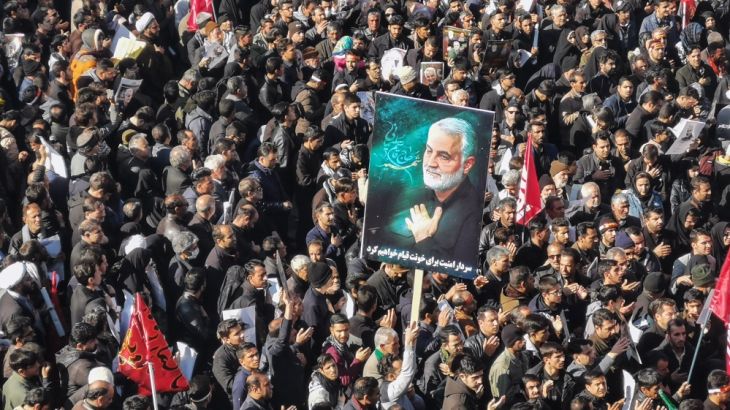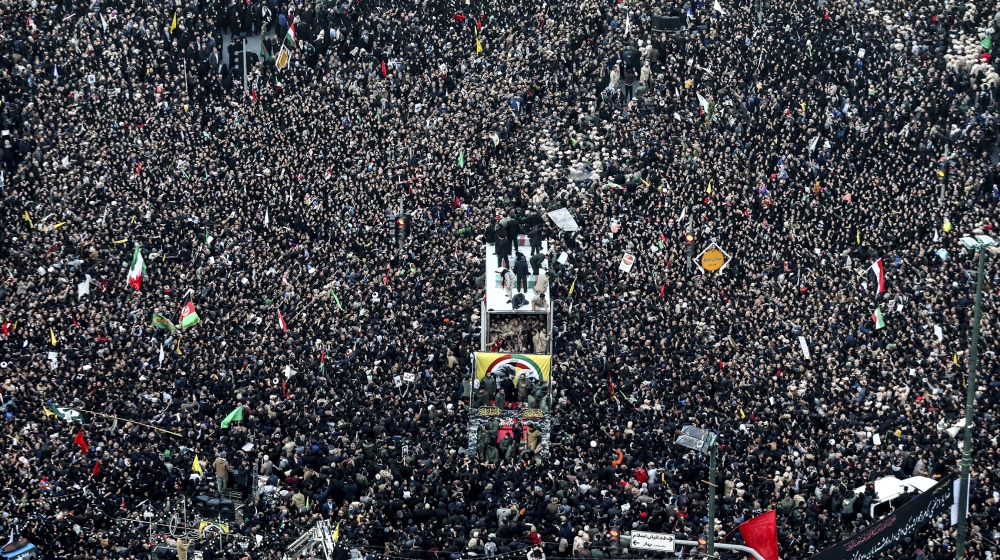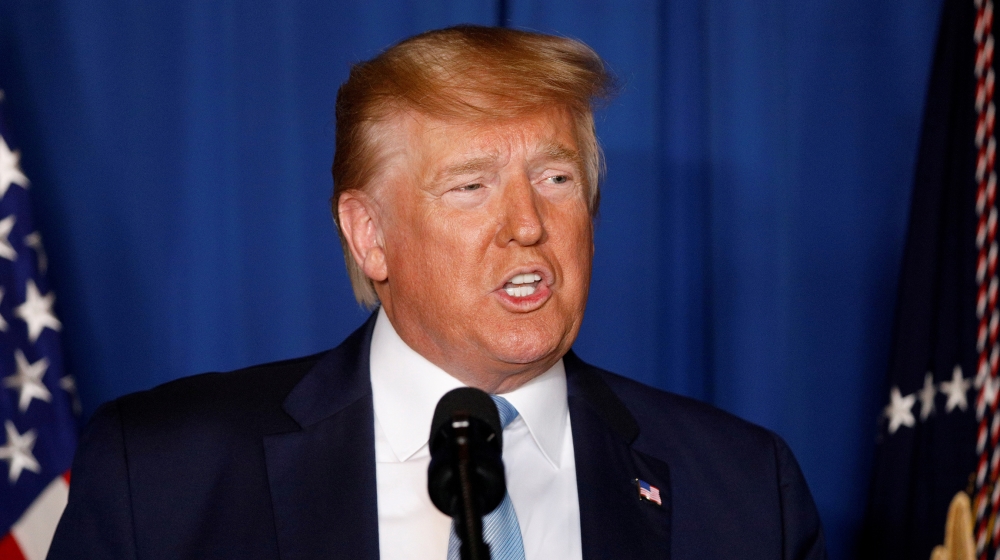All you need to know about Iran’s arrest warrant for Trump
Iran seeks Interpol help to arrest US President Donald Trump and dozens of his aides over Qassem Soleimani killing.

Iran has issued an arrest warrant against US President Donald Trump and dozens of his aides, months after the killing of top Iranian General Qassem Soleimani in an air strike in Iraq.
The US assassination of the top Iranian general on January 3 heightened tensions between the two archrivals, which have been at loggerheads since Trump pulled his country out of a landmark nuclear deal between Iran and world powers in 2018.
Keep reading
list of 4 itemsExplosions kill dozens gathered for anniversary of Soleimani assassination
Iran blasts updates: Deadly explosions target Soleimani death anniversary
Deadly explosions in Iran during Soleimani anniversary procession
Tehran prosecutor Ali Alqasimehr on Monday said Trump, along with more than 30 others Iran accuses of involvement in the attack, face “murder and terrorism charges”, the semi-official ISNA news agency reported, without mentioning the names of any of his aides.
What happened after the assassination?
The US killed General Soleimani, who oversaw the Revolutionary Guard Corps’s expeditionary Quds Force, and others in the January attack near Baghdad International Airport.
The attack infuriated Shia Iraqi legislators who voted to remove more than 5,000 US troops deployed in the country.

Following three national days of mourning, Iran retaliated for Soleimani’s killing with a barrage of missiles that targeted two airbases hosting US troops in Iraq in Erbil and Ain al-Assad. The troops had prior warning and none was killed, but more than 100 have since been diagnosed with traumatic brain injuries.
Iran and the US have since refrained from further escalation, but the issue of US troops has been at the forefront of Iraqi politics.
|
|
What is Iran saying?
While Iran argues that Soleimani’s assassination constitutes an extrajudicial killing, Washington initially justified the killing by saying it was anticipating an “imminent attack” against the US personnel and embassies, but no proof was provided to Congress.
It later said the killing was meant to deter Iran and its proxies from launching attacks on US bases in the region.
In its announcement on Monday, Iran sought the assistance of Interpol in carrying out the arrests.
US response
Brian Hook, the US special representative for Iran, dismissed the announcement during a news conference in Saudi Arabia.
“It’s a propaganda stunt that no one takes seriously and makes the Iranians look foolish,” Hook said.
What could happen next?
Interpol said in a statement its constitution forbade it to undertake “any intervention or activities of a political, military, religious or racial character”.
“Therefore, if or when any such requests were to be sent to the General Secretariat,” it added, “… Interpol would not consider requests of this nature.”
Hook referred to Interpol’s guidelines during his news conference in the Saudi capital, Riyadh.
“Our assessment is that Interpol does not intervene and issue red notices … (of) a political nature,” he said.
“This is a political nature. This has nothing to do with national security, international peace or promoting stability.”
Alqasimehrsaid Iran would continue to pursue the matter after Trump left office.

President Trump has in recent years embarked on a campaign to economically squeeze Tehran through successive rounds of sanctions targeting individuals and entities.
Dubbed the “maximum pressure” campaign, the strategy consists of complementary diplomatic, economic and military pressure methods to curb Iran’s influence in the region and to put an end to the country’s nuclear ambitions and missile programme.
Tensions might lead to yet another round of sanctions that would further weaken Iran’s dire economy, which has been battered by the coronavirus pandemic.
Meanwhile, Saudi and US officials on Monday urged the international community to extend a United Nations arms embargo on Iran, warning that letting the ban expire would allow Tehran to further arm its proxies and destabilise the region.
Saudi minister of state for foreign affairs, Adel al-Jubeir, and US Iran envoy Hook were speaking at a joint news conference in Riyadh, where the venue displayed weapons, including drones and missiles, that Saudi authorities accuse Tehran of sending to Yemen’s Iran-aligned Houthi rebels.